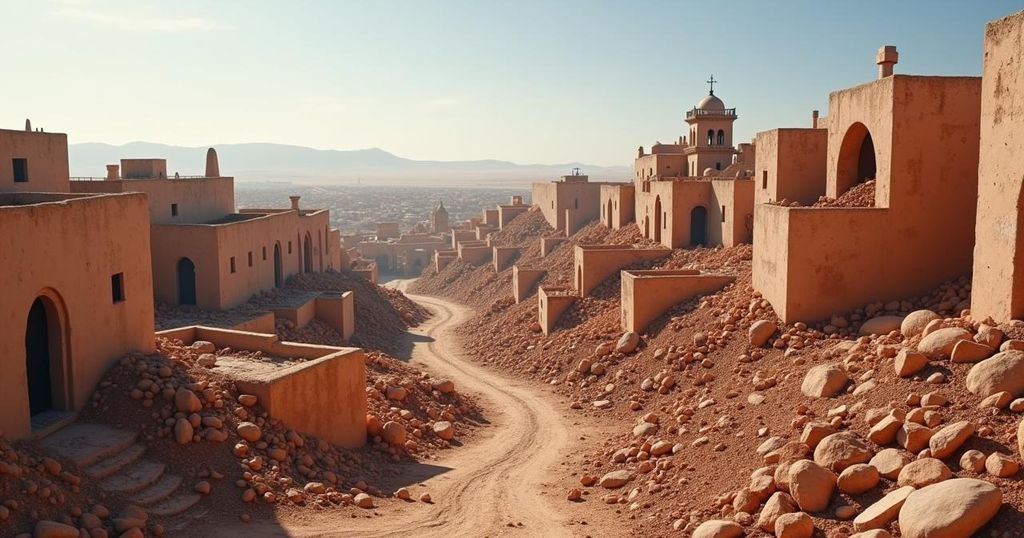The European Investment Bank has pledged €1 billion to support Morocco’s reconstruction efforts following the earthquake in Al Haouz region on September 8, 2023. This funding will facilitate the rehabilitation of infrastructure, enhance disaster resilience, and promote sustainable energy solutions. The Moroccan government is mobilizing $12 billion for recovery initiatives impacting 4.2 million people, signifying a comprehensive approach to rebuilding.
In response to the devastating earthquake that struck the Al Haouz region of Morocco on September 8, 2023, the European Investment Bank (EIB) has committed to providing €1 billion in financial support over the next three years for the reconstruction of affected public infrastructure. The initial €500 million tranche of this funding was recently formalized in Rabat, where representatives from the EIB and Morocco’s Ministry of Economy and Finance convened. This gathering included officials from various ministries, including National Education, Infrastructure and Water, and Health. The EIB’s funding will play a vital role in Morocco’s reconstruction strategy, which prioritizes the rehabilitation of essential services such as schools, healthcare facilities, and transportation networks. Furthermore, the program is designed to enhance seismic resilience and promote the integration of sustainable energy solutions, aligning with the EU-Morocco Green Partnership’s objectives. In light of the earthquake’s impact, Morocco has established an agency dedicated to overseeing the reconstruction initiatives in the most severely affected areas. This agency will manage projects aimed at rehousing displaced populations and upgrading critical infrastructure across six provinces: Marrakech, Al Haouz, Taroudant, Chichaoua, Ouarzazate, and Azilal. The Moroccan government aims to mobilize a total of $12 billion over the next five years to aid approximately 4.2 million individuals residing in these regions while focusing on rebuilding efforts. The EIB has expressed its commitment to supporting Morocco not only in its immediate recovery efforts but also in its green transition and in promoting inclusive socioeconomic development. Moreover, the Bank underscores the importance of enhancing resilience against future natural disasters as a foundational aspect of the reconstruction process.
The September 2023 earthquake in Morocco was a significant disaster that prompted immediate responses from both national and international stakeholders. The European Investment Bank’s involvement illustrates the EU’s commitment to fostering resilient infrastructure in Morocco, aligning reconstruction efforts with broader environmental goals. The establishment of a dedicated agency by the Moroccan government aims to streamline recovery efforts, ensuring that the rebuilding process is comprehensive and effectively addresses both immediate and long-term needs of the population affected by the disaster. Morocco’s plan to invest $12 billion in these initiatives highlights the scale of rehabilitation required and also reflects the importance of international partnerships in facilitating recovery from such catastrophic events.
In conclusion, the EIB’s pledge of €1 billion marks a critical step in Morocco’s efforts to recover from the recent earthquake. With a focus on rebuilding essential infrastructure, improving disaster resilience, and promoting sustainable practices, this funding will significantly impact the affected regions. The structured agency overseeing the reconstruction underscores Morocco’s proactive approach to recovery, aspiring to not only restore but also enhance the living conditions for millions while preparing for future challenges. Through collective action and strategic investments, there is an opportunity to build a stronger, more resilient Morocco.
Original Source: northafricapost.com






